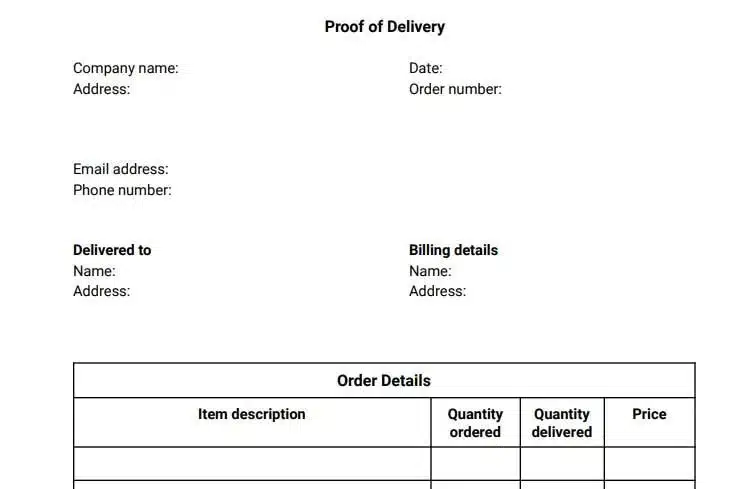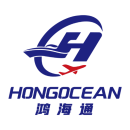
Factors affecting the cost of shipping from China to Bulgaria
Several factors can affect the final shipping cost.
- Mode of Transport: Sea freight (full container load FCL or less than container load LCL) is usually much cheaper than air freight but slower. Rail freight (via China Railway Express, etc.) may be an option that compromises between the two (cost and time).
- Cargo Specifics:
- Weight and volume: These are the basis for calculating freight costs. The charge is usually based on the “chargeable weight” (the higher of the actual weight or the volumetric weight) for sea freight, LCL, and air freight.
- Type of cargo: There are different costs for general cargo, dangerous goods, goods requiring temperature control (refrigerated), and oversized/overweight goods.
- Origin and destination (Origin & Destination):
- The specific Chinese city/port of origin (e.g., Shanghai, Ningbo, Shenzhen, Qingdao, etc.).
- The specific Bulgarian destination city/port (the main seaports are Varna and Burgas, and the main airport is Sofia) will increase costs. Inland transportation distances will also increase costs.
- Transit Time Requirements: Expedited services (such as express air freight) are more expensive than standard services (standard air freight, sea freight).
- Market Conditions:
- Supply and demand: prices rise when space is tight.
- Fuel Surcharge (BAF/FAF): fluctuates with international oil prices.
- Peak Season Surcharge (PSS): This is usually charged during holidays (e.g., before Christmas, before the Chinese New Year) or specific peak shipping periods.
- Global Events, such as pandemics, geopolitical conflicts, port strikes, etc., may affect prices and transit times.
- Incoterms: The Incoterms (e.g. EXW, FOB, CIF, DDP, etc.) agreed between you and your supplier determine how costs are divided along the supply chain and can affect the scope of the fees you pay to the freight forwarder.
- Carrier & Forwarder: Different shipping companies, airlines, and freight forwarders have different pricing strategies and service levels.
- Additional Services: such as cargo insurance, warehousing, customs clearance, palletizing, labelling, etc.
Shipping costs from China to Bulgaria
As mentioned above, there is no fixed “shipping cost”. The cost varies depending on the factors mentioned above.
- Sea freight is usually the most common and economical method, but it takes longer (about 30-45 days or longer, depending on the specific route and transit).
- Air freight: fast (usually 3-10 days) but expensive, suitable for high-value or urgently needed goods.
- Railway: may be faster than sea freight and cheaper than air freight, but routes and services may not be as widespread as sea and air freight.

LCL Shipping Costs from China to Bulgaria
Less than Container Load (LCL) applies when the volume of goods is insufficient to fill a full container.
- Billing method: Usually charged per cubic meter (CBM) or per ton (Ton), whichever generates the higher cost (W/M – Weight or Measurement).
- Cost components: In addition to the sea freight, warehouse handling charges at the port of departure and destination, documentation fees, consolidation service fees, customs clearance fees, inland transportation fees, etc. are also included.
The approximate cost range is as follows:
| POL (port of loading) | POD (port of discharge) | LCL Shipping Cost |
|---|---|---|
| Shanghai | Varna | $100-$160 |
| Shenzhen | Varna | $105-$155 |
| Ningbo | Varna | $110-$160 |
| Qingdao | Varna | $105-$160 |
| Shanghai | Burgas | $100-$155 |
| Shenzhen | Burgas | $115-$160 |
| Ningbo | Burgas | $110-$155 |
| Qingdao | Burgas | $100-$160 |
Costs for shipping 20-foot and 40-foot containers from China to Bulgaria
A Full Container Load (FCL) is when you hire an entire container for your goods.
- Billing method: A fixed fee is usually charged per container type (20-foot standard dry container – 20’GP, 40-foot standard dry container – 40’GP, 40-foot high cube container – 40’HC).
- Cost components: Basic ocean freight (BAS), bunker adjustment factor (BAF), peak season surcharge (PSS, if applicable), origin terminal handling charges (OTHC), destination terminal handling charges (DTHC), documentation fees, customs clearance fees, inland transportation fees from port to door, etc.
The approximate cost range is as follows:
| POL (port of loading) | POD (port of discharge) | 20ft container cost | 40ft container cost |
|---|---|---|---|
| Shanghai | Varna | $1550-$3050 | $3500-$5000 |
| Shenzhen | Varna | $1500-$3000 | $3450-$4950 |
| Ningbo | Varna | $1550-$2900 | $3650-$4850 |
| Qingdao | Varna | $1450-$3050 | $3350-$4800 |
| Shanghai | Burgas | $1600-$3100 | $3650-$4850 |
| Shenzhen | Burgas | $1550-$3050 | $3500-$4800 |
| Ningbo | Burgas | $1450-$3050 | $3750-$4950 |
| Qingdao | Burgas | $1550-$2950 | $3350-$4800 |
Air Freight Costs from China to Bulgaria

Air freight is the fastest way to ship goods.
- Billing method: Charged according to “chargeable weight,” which is larger than the actual gross weight or the volumetric weight. The volumetric weight is usually calculated as (length cm * width cm * height cm) / 6000 (different airlines or regions may use /5000).
- Cost components: Airfare (charged by kilogram class; the higher the weight, the lower the unit price), fuel surcharge, security surcharge, airport ground handling fee, pick-up fee, customs declaration fee, customs clearance fee, delivery fee, etc.
The approximate cost range is as follows:
| Departure Airport (China) | Arrival Airport (Bulgaria) | Cost Per KG (USD) |
|---|---|---|
| Shanghai Pudong | Sofia | $5.80 – $8.50 |
| Guangzhou Baiyun | Sofia | $6.00 – $8.60 |
| Beijing Capital | Sofia | $5.90 – $8.40 |
| Shanghai Pudong | Plovdiv | $5.70 – $7.70 |
| Guangzhou Baiyun | Plovdiv | $5.80 – $9.20 |
| Beijing Capital | Plovdiv | $6.00 – $8.50 |
Strategies for reducing shipping costs from China to Bulgaria
- Plan: Avoid last-minute bookings and book space as early as possible, especially before peak season. Longer lead times are required for sea freight.
- Choose the Right Mode: Prioritise sea freight for non-urgent, bulky/heavy goods. Only use air freight when necessary. Assess the feasibility of rail transport.
- Optimize Packaging: Minimize the volume and weight of packaging while ensuring the safety of the goods. This can significantly reduce costs, especially for LCL and FCL shipments.
- Consolidate Shipments: To achieve economies of scale, combine multiple small orders into one larger LCL or FCL shipment.
- Understand and negotiate Incoterms: Choosing the right Incoterms (e.g., FOB instead of EXW) may shift some of the origin costs to the supplier.
- Get Multiple Quotes: Ask for quotes from at least three freight forwarders and carefully compare the services included and the breakdown of costs. Don’t just look at the lowest total price.
- Avoid peak shipping seasons: If time allows, avoid shipping during traditional peak seasons (e.g., 2-3 months before Christmas, 1 month before the Chinese New Year).
- Be flexible: If shipping time is not critical, you can sometimes accept a slightly longer shipping time or transit, which will sometimes get you a better price.
- Build Relationships: Long-term customers may be offered better prices or receive preferential treatment.
- Clarify All Fees: To avoid unexpected bills later, make sure the quote is an “all-inclusive price” or lists all potential fees.




